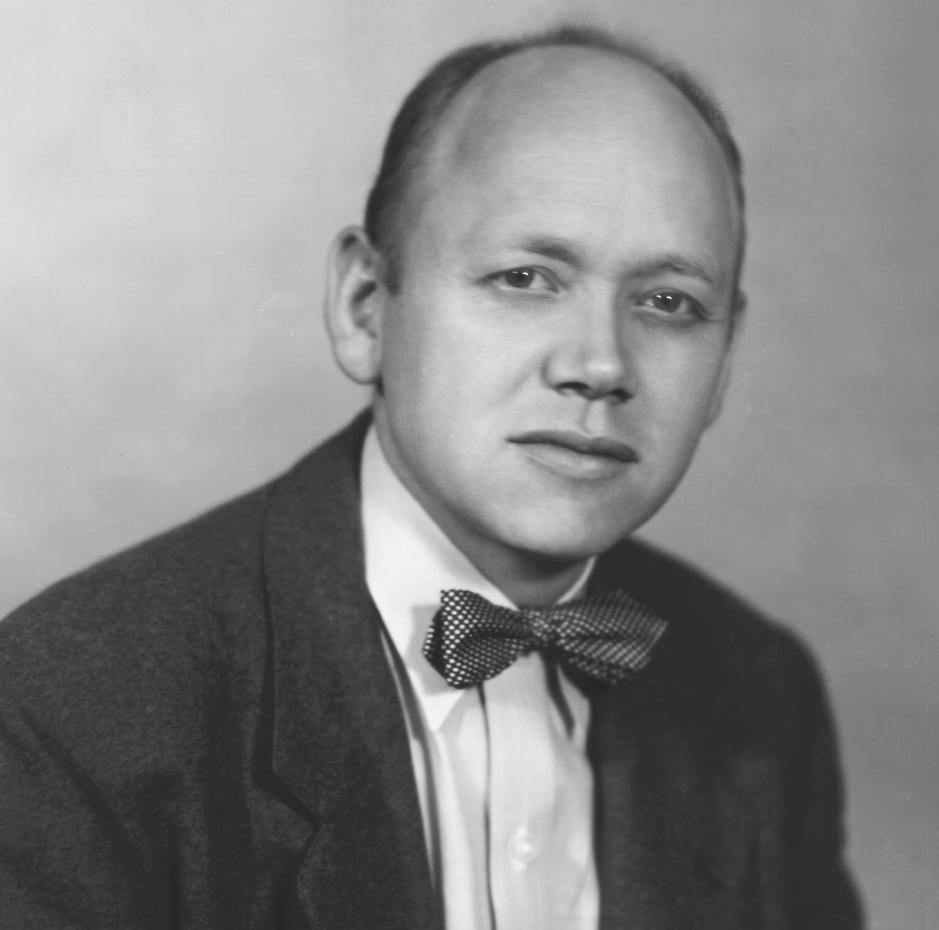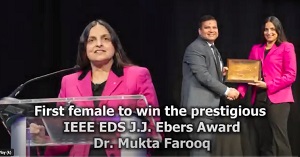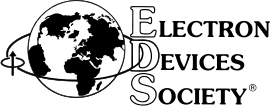J.J. Ebers Award

The Jewell James Ebers Award was established in 1971 with the intention to foster progress in electron devices and to commemorate the life activities of Jewell James Ebers, whose distinguished contributions, particularly in the transistor art, shaped the understanding and technology of electron devices.
Sponsor: IEEE Electron Devices Society
Scope: Honors an individual(s) who has made either a single or a series of contributions of recognized scientific, economic, or social significance in the broad field of electron devices
Eligibility: Previous recipients of this award are ineligible. Self-nominations are not accepted or considered. Members of the EDS Awards Committee and voting members of the J.J. Ebers Award Committee are not permitted to submit or endorse nominations.
Prize: The award consists of a plaque and $5,000
Basis for judging: Nominees shall be judged based on outstanding technical contributions in the following: Field leadership in a specific area, specific contribution, originality, breadth, inventive value, publications, other achievements, honors, duration, nomination quality
J.J. Ebers Award Committee: Committee
Nomination deadline: 1 July
Nomination form: https://ieeeforms.wufoo.com/forms/xl0lxns05xzwir/
Carry Over Nominations: Candidates will not be automatically considered the next year. Each year new nominations and endorsement letters will have to be submitted to be considered.
Presentation: Presented at the annual IEEE EDS Electron Devices Meeting (IEDM) or any of the EDS flagship conferences (EDTM, VLSI or PVSC).
Please note: The EDS J.J. Ebers Award cannot be given to a candidate for the same work for which an IEEE Technical Field Award, IEEE Medal, or other society level award was previously received.
Past Award Winners: Winners
Congratulations to Mukta Farooq, 2023 IEEE EDS J.J. Ebers Award Winner!
For development of emerging heterogeneous integration architectures for 3D ICs








